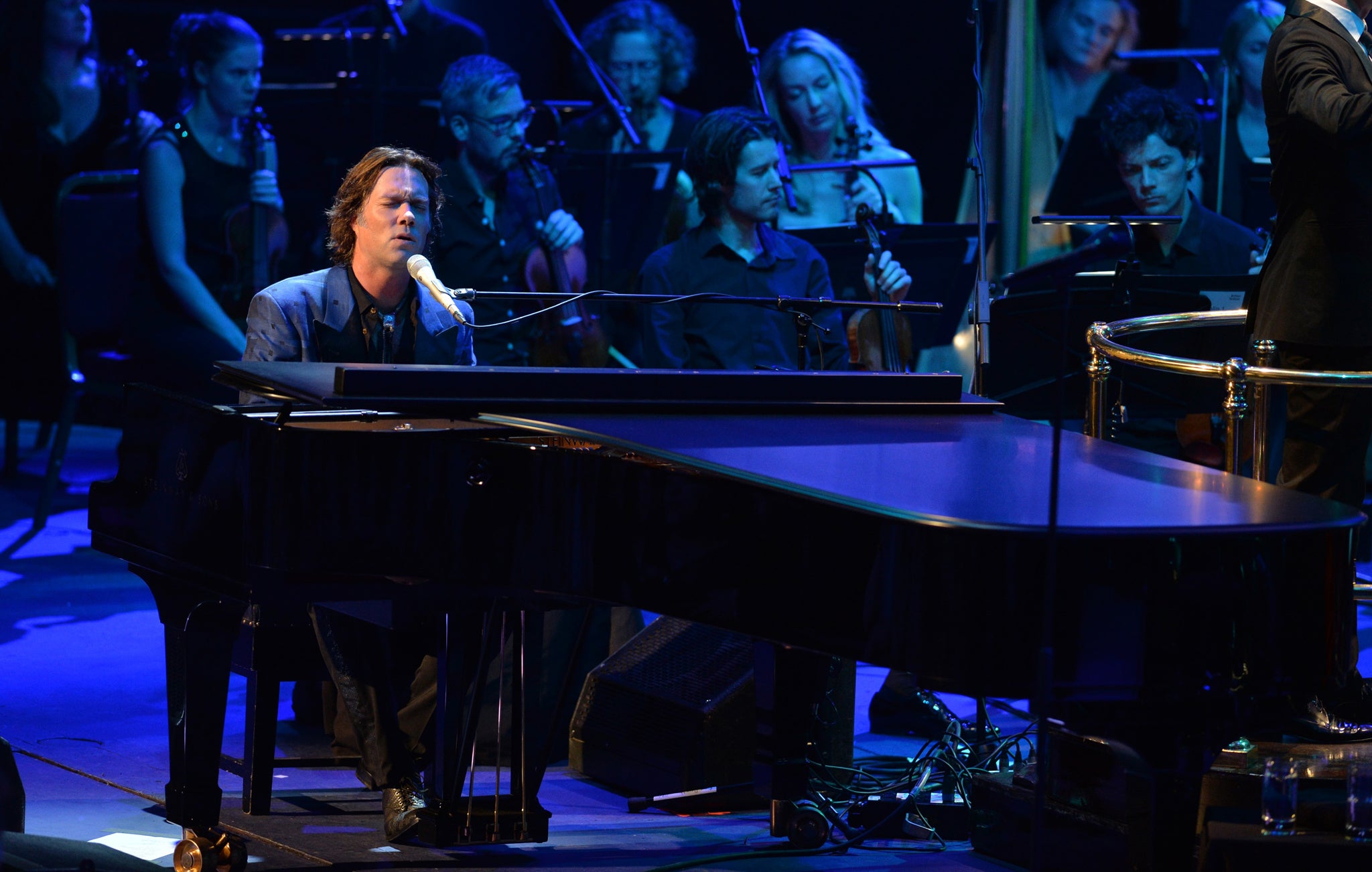Prom 74: Rufus Wainwright, Royal Albert Hall, review
The force of his personality, best expressed in the rebel spirit of his rich songs, carries him over most pitfalls

Your support helps us to tell the story
From reproductive rights to climate change to Big Tech, The Independent is on the ground when the story is developing. Whether it's investigating the financials of Elon Musk's pro-Trump PAC or producing our latest documentary, 'The A Word', which shines a light on the American women fighting for reproductive rights, we know how important it is to parse out the facts from the messaging.
At such a critical moment in US history, we need reporters on the ground. Your donation allows us to keep sending journalists to speak to both sides of the story.
The Independent is trusted by Americans across the entire political spectrum. And unlike many other quality news outlets, we choose not to lock Americans out of our reporting and analysis with paywalls. We believe quality journalism should be available to everyone, paid for by those who can afford it.
Your support makes all the difference.Rufus Wainwright’s last, moderately successful album, Out of the Game (2012), suggested the appeal of his very particular tenor can wear thin over time. Singing a Prom with the Britten Sinfonia, including a duet with opera star Deborah Voigt, might then seem rash.
But Wainwright’s musical life has never been bashful. He breezily admits to this partly classical crowd that he is “a very bad pianist” and, referencing his opera Prima Donna, “a composer, of sorts”. The force of his personality, best expressed in the rebel spirit of his rich songs, carries him over most pitfalls.
Wainwright and the Sinfonia take a few songs to gel. The Hollywood-brash “Me and Liza” finds Wainwright’s voice lost amongst the musicians in quieter moments, only finding its space in the sound when, back hunched and neck craning to the mic, he launches himself full-power at the song. He reaches equilibrium with “Who Are You New York”, his tenor taking a touch of vibrato as it climbs to comfortable, cruising potency.
Vocal niceties don’t anyway matter as much as Wainwright’s writing. The new “Friendship” shares its quality of mature reflection with Out of the Game. “It really doesn’t matter when you’re too young to remember,” he sings, his voice cracking as a beloved friendship sinks into the past tense, to be treasured. Max Moston’s arrangements give the woodwind and strings sweeping, nautical romance. Memories of snowbound Berlin courtship with his husband Jorn Weisbrodt animate “Tiergarten”, dedicated to the man “without whom I wouldn’t really be here, looking so fabulous.”
Deborah Voigt sings two Prima Donna arias. For the second, “Quand j’etais jeune etudiante”, Wainwright’s woozy Impressionist colours come to melancholy rest for his opera’s defiant, ageing diva, easily captured by Voigt. A showbiz duet on Rodgers and Hammerstein’s “If I Loved You”, playfully undercut to a fault by Wainwright, is, though, harmlessly awful.
“Poses”’ lush flow of lyrics remind you what a New York-style, urban songwriter Wainwright is. Tonight’s strongest moments prove that his life has also made him a protest singer. “Going To A Town”, with its memorable, Bush-era declaration that “I’m so tired of America”, begins in disgust and ends with Wainwright vocally striding free. “I Don’t Know What It Is” gradually climbs into a pop chorus’s big, swinging punches, marching out of conservative constraint to community with those whose sexuality sometimes leaves them with “slightly mysterious bruises”.
“Cigarettes and Chocolate” is taken at a giddy, carousel-horse trot, flinging in castanets as the floor spins with Wainwright’s unashamed confessions of old addictions, his voice slurring as he stands in the mess of the night before.
Then he crouches on one knee for “Somewhere Over the Rainbow”, quietly bereft when he first sings, of reaching the song’s free places, “why can’t I?” Then he explicitly demands the freedom gay listeners implied in Judy Garland’s original, as the Sinfonia climaxes around him. This accidental freedom song is a triumphant end.
Join our commenting forum
Join thought-provoking conversations, follow other Independent readers and see their replies
Comments